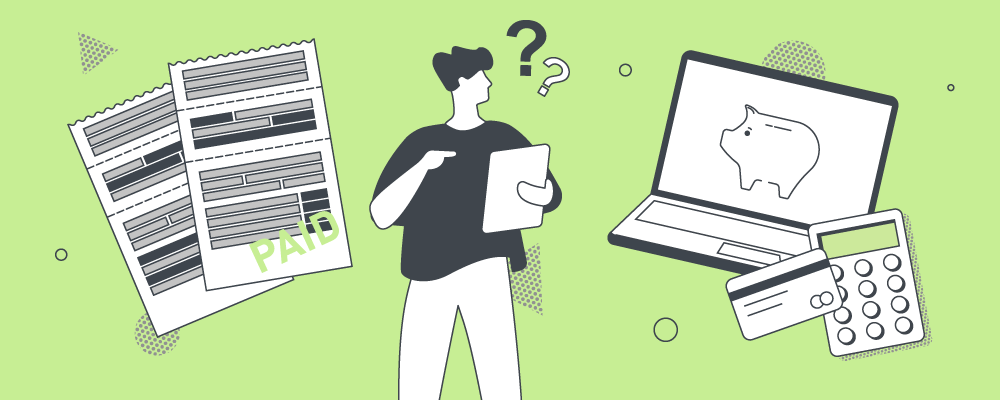
Understanding the mortgage process
Mortgage Process Key Steps:
• Collect necessary documents – payslips, bank statements, proof of funds, utility bill, proof of ID
• Credit history checks – to assess your reliability as a borrower
• Applying for your mortgage – apply before house hunting to know your affordability
• Underwriters checks – they will access your income, expenses, debts, age, credit report, property details, fraud checks and more
Understanding the mortgage process can help you know when you might be ready to reserve a property or make an offer.
Buying your first home is an exciting time but it can also feel confusing, especially if it is your first time buying a home.
One important timeframe to understand is how long it will take to apply for a mortgage, as this will determine when you will be able to reserve a property or make an offer.
In order to know this, you should familiarise yourself with the mortgage application process.
How Do I Check My Credit History?
Applying for a mortgage is a thorough process, with lenders reviewing all of your outgoing costs when they assess what you can actually afford to pay each month. They will also assess your credit history to make sure you’re a reliable borrower, and to check any outstanding credit you currently have. To avoid unnecessary delays, it’s a good idea to spend some time checking your credit reports to make sure there are no errors that might cause your application to slip up.
You can contact one of the three main credit references agencies -Experian, CallCredit and Equifax- and order your reports, and this can often be done online. If there are any errors in your reports then you can correct them before you even apply for your mortgage. Take a few moments to register to vote if you haven’t already as this makes it easier for lenders to check your address. More information on credit scores and how you can help improve your score is available here.
What Do I Need to Apply for a Mortgage?
You should also start collecting the documents you’ll need as part of your application to avoid any last-minute panic. A mortgage provider will typically want to see payslips from the last 3 months, your bank statements for the last 3-6 months, statements from your savings accounts, a P60 from your employer, proof of any benefits you receive, utility bills and your passport or driving licence. Collecting these in advance can spare you a lot of delays later on.
When Should I Apply for a Mortgage?
As mentioned, it’s a good idea to apply for a mortgage before you start house hunt. This may seem odd but there are good reasons. Applying and getting a mortgage in principle means you know how much you can afford before you start looking, and you’ll be at less risk of losing your dream home because you couldn’t borrow as much as you had thought.
Secondly, applying in advance makes it less likely that you will lose the house you’ve put an offer on or reserved due to a delay in your application slowing things down. Such delays could cause a seller to become impatient and accept somebody else’s offer instead.
Finally, having a mortgage in principle shows a seller you’re serious and that they can therefore take your offer seriously. Sometimes they will accept a lower offer from a buyer with a mortgage already lined up rather than risk accepting a higher offer from someone who hasn’t yet applied.
If you are buying a new build home, often the developer will be able to put you in touch with an expert mortgage broker or adviser who are often familiar with the new development already. This can be a great help in speeding up the buying process.
How Long Will a Mortgage Application Take?
The length of time that it takes to get a mortgage offer can vary enormously, from a few days to several weeks, but typically a mortgage arranged by one of our recommended brokers will take around 2 weeks.
As mentioned earlier, our advice would be to obtain an agreement in principle early in the process. Take advice from a mortgage broker who will understand the varying requirements of the different lenders and will be able to advise you on what information and documentation they will need. You should also prepare your essential house purchase documents so that they are ready to be submitted with the application. A ‘fully packaged’ application, with all of the relevant documents supporting it, sent on day one can receive a mortgage offer within a matter of days.
Why Should You Consider a New Build?
The reassuring thing about buying a new property is that you’re liaising with a sales team who routinely sell homes. Our trained Barratt Homes property sales advisers are experts in the moving process, and are able to assist with any surprises or issues that may arise when arranging a mortgage.
Unlike a typical seller who is anxious about their place in a chain of buyers, our advisers are calm, experienced and unfazed by the routine difficulties attached to getting a mortgage. By recommending a broker who is familiar with the development you’re buying on, a Barratt sales adviser can be an extra layer of support during the buying process.
While you’re waiting for your mortgage application to be accepted, you can pass the time by adding your personal touch and choosing the finishing touches for your home’s interior, making sure your new house really feels like a home.


